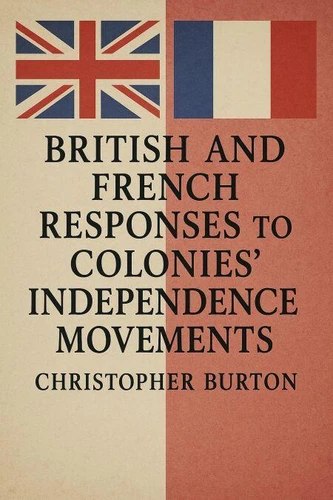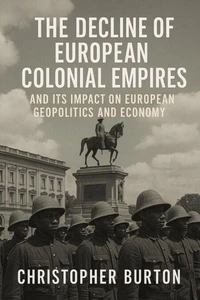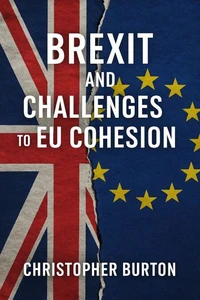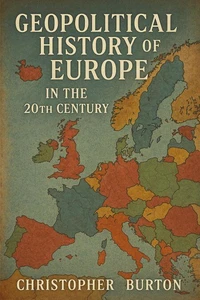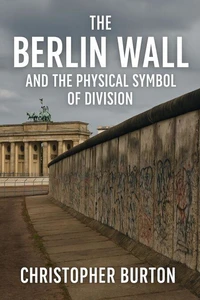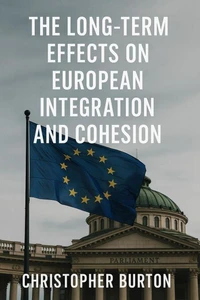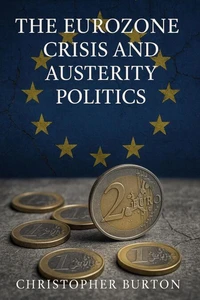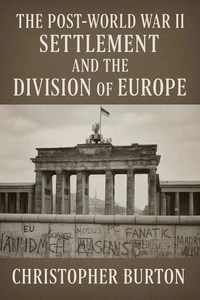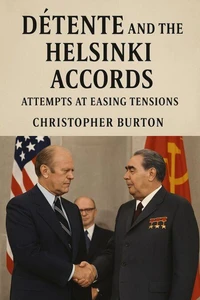British and French Responses to Colonies' Independence Movements
Par :Formats :
Disponible dans votre compte client Decitre ou Furet du Nord dès validation de votre commande. Le format ePub est :
- Compatible avec une lecture sur My Vivlio (smartphone, tablette, ordinateur)
- Compatible avec une lecture sur liseuses Vivlio
- Pour les liseuses autres que Vivlio, vous devez utiliser le logiciel Adobe Digital Edition. Non compatible avec la lecture sur les liseuses Kindle, Remarkable et Sony
 , qui est-ce ?
, qui est-ce ?Notre partenaire de plateforme de lecture numérique où vous retrouverez l'ensemble de vos ebooks gratuitement
Pour en savoir plus sur nos ebooks, consultez notre aide en ligne ici
- FormatePub
- ISBN8230165552
- EAN9798230165552
- Date de parution31/05/2025
- Protection num.pas de protection
- Infos supplémentairesepub
- ÉditeurIndependently Published
Résumé
In the turbulent aftermath of World War II, two of Europe's greatest empires-Britain and France-stood at a crossroads, confronting the unstoppable rise of independence movements across their vast colonial territories. British and French Responses to Colonies' Independence Movements offers an incisive and richly detailed exploration of how these imperial powers navigated the complex, often violent, processes of decolonization.
Drawing on extensive archival research, primary sources, and case studies from India, Algeria, Ghana, Vietnam, and beyond, Christopher Burton unpacks the contrasting strategies, ideologies, and political debates that shaped Britain's gradual withdrawal and France's fraught struggle to maintain empire. This nuanced narrative reveals the interplay of nationalism, imperial ambition, economic interests, and Cold War geopolitics, providing fresh insights into the successes, failures, and enduring legacies of empire's dissolution.
From the blood-soaked battlefields of Algeria to the diplomatic halls of London and Paris, this book illuminates the human stories and geopolitical forces behind the end of empire. It challenges simplistic narratives of colonial retreat, exposing the moral complexities, political contradictions, and economic calculations that defined a transformative era. For historians, students, and anyone fascinated by the forces that shaped the modern world, this is an essential, authoritative account of the final chapter of European imperialism-an epoch that continues to reverberate in contemporary global politics.
Drawing on extensive archival research, primary sources, and case studies from India, Algeria, Ghana, Vietnam, and beyond, Christopher Burton unpacks the contrasting strategies, ideologies, and political debates that shaped Britain's gradual withdrawal and France's fraught struggle to maintain empire. This nuanced narrative reveals the interplay of nationalism, imperial ambition, economic interests, and Cold War geopolitics, providing fresh insights into the successes, failures, and enduring legacies of empire's dissolution.
From the blood-soaked battlefields of Algeria to the diplomatic halls of London and Paris, this book illuminates the human stories and geopolitical forces behind the end of empire. It challenges simplistic narratives of colonial retreat, exposing the moral complexities, political contradictions, and economic calculations that defined a transformative era. For historians, students, and anyone fascinated by the forces that shaped the modern world, this is an essential, authoritative account of the final chapter of European imperialism-an epoch that continues to reverberate in contemporary global politics.
In the turbulent aftermath of World War II, two of Europe's greatest empires-Britain and France-stood at a crossroads, confronting the unstoppable rise of independence movements across their vast colonial territories. British and French Responses to Colonies' Independence Movements offers an incisive and richly detailed exploration of how these imperial powers navigated the complex, often violent, processes of decolonization.
Drawing on extensive archival research, primary sources, and case studies from India, Algeria, Ghana, Vietnam, and beyond, Christopher Burton unpacks the contrasting strategies, ideologies, and political debates that shaped Britain's gradual withdrawal and France's fraught struggle to maintain empire. This nuanced narrative reveals the interplay of nationalism, imperial ambition, economic interests, and Cold War geopolitics, providing fresh insights into the successes, failures, and enduring legacies of empire's dissolution.
From the blood-soaked battlefields of Algeria to the diplomatic halls of London and Paris, this book illuminates the human stories and geopolitical forces behind the end of empire. It challenges simplistic narratives of colonial retreat, exposing the moral complexities, political contradictions, and economic calculations that defined a transformative era. For historians, students, and anyone fascinated by the forces that shaped the modern world, this is an essential, authoritative account of the final chapter of European imperialism-an epoch that continues to reverberate in contemporary global politics.
Drawing on extensive archival research, primary sources, and case studies from India, Algeria, Ghana, Vietnam, and beyond, Christopher Burton unpacks the contrasting strategies, ideologies, and political debates that shaped Britain's gradual withdrawal and France's fraught struggle to maintain empire. This nuanced narrative reveals the interplay of nationalism, imperial ambition, economic interests, and Cold War geopolitics, providing fresh insights into the successes, failures, and enduring legacies of empire's dissolution.
From the blood-soaked battlefields of Algeria to the diplomatic halls of London and Paris, this book illuminates the human stories and geopolitical forces behind the end of empire. It challenges simplistic narratives of colonial retreat, exposing the moral complexities, political contradictions, and economic calculations that defined a transformative era. For historians, students, and anyone fascinated by the forces that shaped the modern world, this is an essential, authoritative account of the final chapter of European imperialism-an epoch that continues to reverberate in contemporary global politics.

